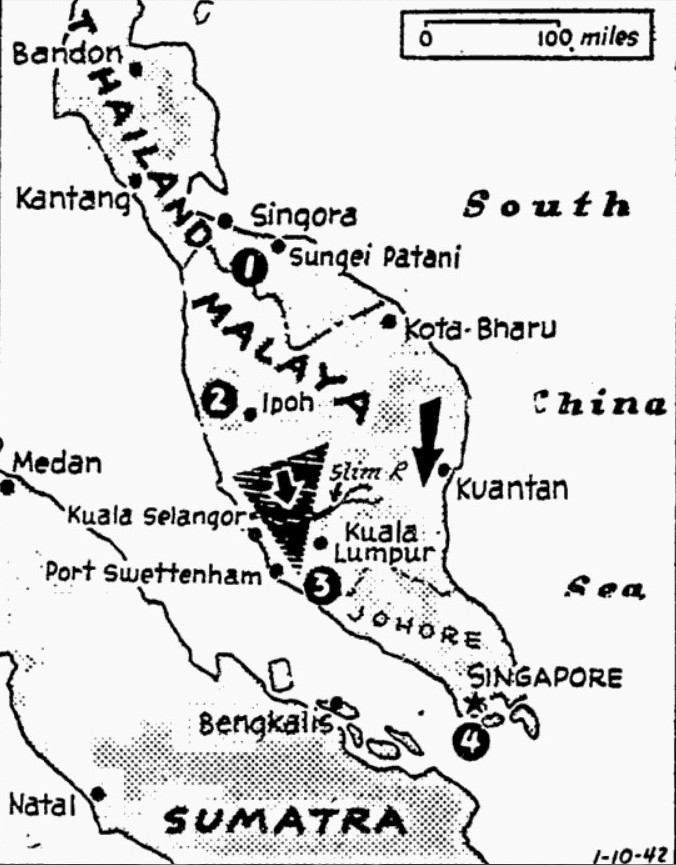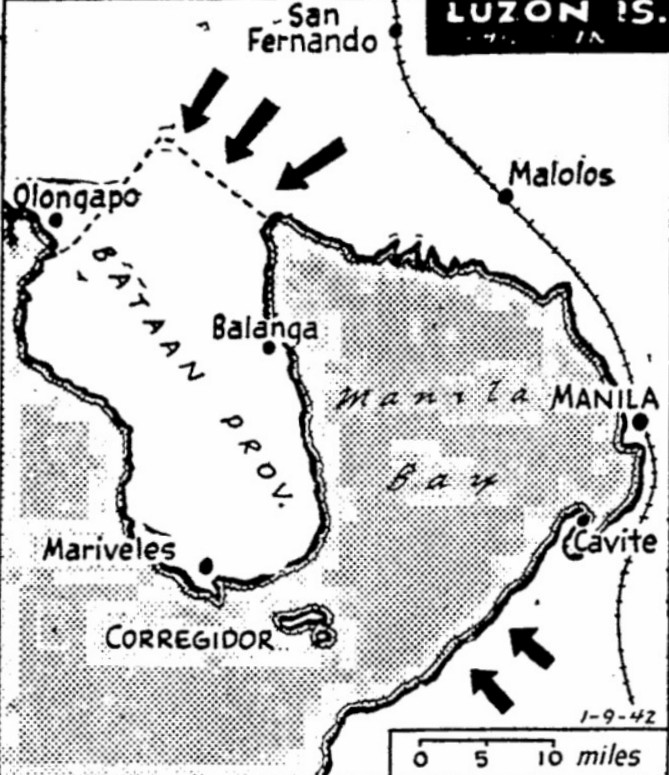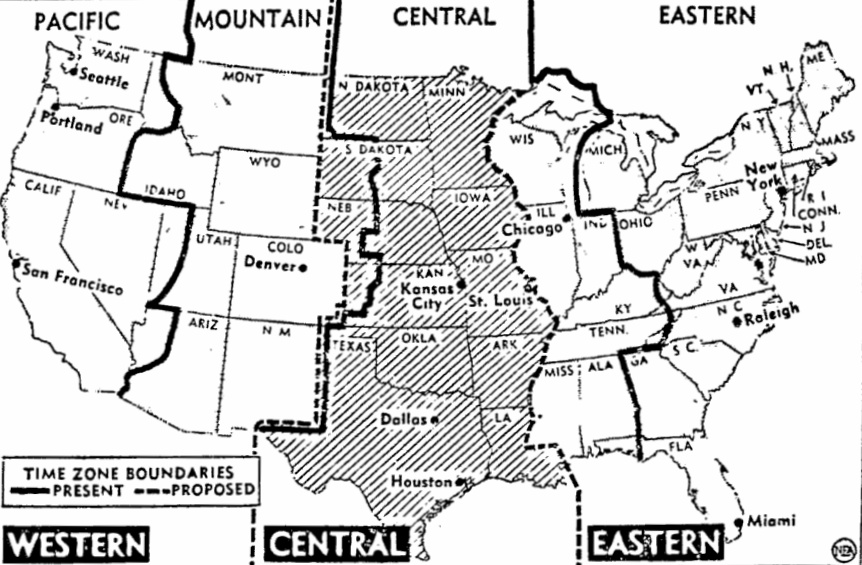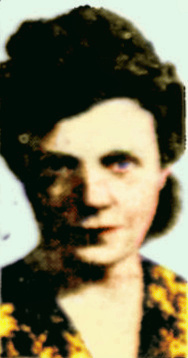WAR BULLETINS!
Tokyo: Japs enter key Malay city
Tokyo, Japan (UP) – (broadcast recorded in U.S.)
Japanese news agency dispatches from the Malayan front today said that British forces had abandoned Kuala Lumpur and were permitting the peaceful entry of Japanese troops. Kuala Lumpur, an important rubber and communications center in Malaya, lies about 200 miles north of Singapore.
U.S. can’t use huge arms, Japs sneer
Tokyo, Japan (UP) – (broadcast recorded in U.S.)
A radio commentator said today that America could not muster men with fighting spirit and training to man the huge armaments it is building. He said:
As far as Japan is concerned, the huge quantities of armaments America will have is looked forward to with the greatest expectation. These will serve as targets for the trained Japanese marksmen and a source of future booty.
RAF attacks docks at Brest
London, England –
The Royal Air Force attacked docks at Brest on the Channel coast again last night, it was reported today.
U.S. leaflets fall on Laval’s home
Vichy, France –
Leaflets containing extracts from speeches by President Roosevelt and Prime Minister Churchill and stressing the historical friendship of the French and American peoples have been found near Vichy. Some of the leaflets dropped on the estate of Pierre Laval, advocate of French collaboration with Germany. The leaflets were dropped by a high-flying RAF plane.
Göring congratulates Japs
Tokyo, Japan (UP) – (official broadcast recorded in New York)
Reichsmarschall Hermann Wilhelm Göring telegraphed congratulations today to the Japanese commander of forces in Malaya on the success of the Japanese drive down the Malayan Peninsula.
Philippines denied radios
Tokyo, Japan (UP) – (official broadcast recorded in San Francisco)
The commander of the Japanese expeditionary forces in the Philippines issued an order Thursday prohibiting the operation of private radio transmitters by residents in the Philippines, it was announced today.
Chinese escape from Hong Kong
New York –
The Chinese are escaping from Japanese-occupied Hong Kong in a “steady stream,” Radio London reported from Chungking tonight. Two members of the Central Executive Committee of the Kuomintang government are among those who fled the fallen colony on Chinese junks, the broadcast said.
Russians keep up attacks
London, England –
Radio Berlin, in a broadcast recorded here, said today that Russian troops were attacking continuously on the Eastern Front, especially heavily in the Moscow and Leningrad sectors. Berlin claimed that all attacks were repulsed with heavy losses.
Dutch island again raided
Batavia, NEI –
Japanese planes for the third consecutive day have raided Tarakan, a strategic Dutch island defense and oil port off East Borneo, but their main objective – a Dutch warship – escaped with only minor damage, a High Command communiqué said today.
Hand-to-hand fight pushes British back
Malaya defenders break up into small groups in ‘cauldron’
By Harold Guard, United Press staff writer

Here’s the situation on the Malayan front:
1. Singora, Patani raided by Allied bombers.
2. RAF starts fires at Jap-held Ipoh.
3. Battles rage in triangle near Kuala Lumpur.
4. British withdrawals in north menace Singapore.
With the British on West Malayan front – (Jan. 9, delayed)
The West Malayan front had turned into an infernal cauldron in which countless British and Jap troops fight hand-to-hand, individually, in small groups, and in organized bodies, immediately north of Kuala Lumpur, 200 miles from Singapore.
Kuala Lumpur, Malaya’s second city and the capital of the Federated Malay States, had been thrown open for British troops and the few remaining natives to take what they need from the deserted shops.
The British fell back again before furious Jap pressure on Kuala Lumpur and it is questionable how long military headquarters could be maintained in the fighting zone some 200 miles north of Singapore, Singapore dispatches said today.
As far as military meaning goes, there has ceased to be a front. Fighting is proceeding in a triangular area, 30 miles wide at its base to the north, bounded by the coast at Port Swettenham, 20 miles southwest of Kuala Lumpur, and the road leading up to Tanjung Malim, 40 miles north of Kuala Lumpur.
Expect worse situation
It is a battle of independent commands. Some British troops are facing north, some west, some east, some actually south, in a gallant stand in which their hope is to slow a Jap advance they have not been able to stop.
The situation is bad and it threatens to get worse. The Japanese are obtaining ever-increasing weight of numbers and are thus able to keep the initiative. The British have neither the strength nor the tactical positions needed for offensive action.
The British and Japs are fighting along the main railroad, along roads and jungle trails, in the thick grass where mosquitoes and poisonous snakes are enemies of both, in the streets and homes of villages, on bridges and through the swamps and crocodile-infested streams.
Choking pall of smoke
Sometimes they are fighting in the burning tropic sun, sometimes in the frequent tropical showers with the rain coming down as if dumped from giant buckets, but fighting day and night as the Japanese tanks come in and the seemingly inexhaustible flow of the Jap robot troops pour southward.
Day and night, there hangs over the battlefield a choking pall of smoke from the rubber plantations and the tin mine installations which the retreating British have set afire.
Every few minutes, a blinding streak of lightning flashes through the smoke.
Reporters nearly cut off
It had become impossible for the British Intelligence Corps to keep up with the confused situation in the frontlines.
A group of correspondents were directed yesterday to a forward headquarters. We found the headquarters deserted – a Jap tank force had attacked it. We came close to being cut off.
Up to the north of Kuala Lumpur, I found grinning British Tommies, sitting along the roadsides at their field and machine guns, enjoying while they could, luxuries from Kuala Lumpur’s shops. One waved a bottle of Chablis at me, while in his other hand, he held a piece of Camembert cheese which he was washing down with the wine.
Natives flee with food
Delighted natives were hurrying to their huts, or preparing to flee southward, with cases of canned goods, articles of clothing, sacks of rice, dried milk and other articles which they had been permitted to select from the shops.
At a village, I exchanged a can of corned beef and a few hardtack biscuits, my entire diet since Monday, for native tea which tasted like nectar after days of drinking warm bottled water.
The British are standing by, at every possible point, to hold a machine gun or a field gun alone or to wait, like the Commandos, to ambush the first Japanese who approach.
All along the coast, in the British rear, there are Commando and other groups waiting to fight off incessant Jap landing attempts.
The most effective defense power of the British consists now not of big bodies of men, but of independent units which move swiftly and strike silently at the Japanese advanced positions.
Many more of these groups are training at Singapore and in the forests and on the estate of Johor Sultanate to the north of it. Australian sharpshooters are taking a prominent part in the training, as they are in the operations of the Commandos at the front.
Commandos are tricky
Gen. Lewis M. Heath, the commander, said to me of the Commandos:
They are grand chaps. They lie out there tortured by the mosquitoes and the blood-sucking leeches until the Japanese come, and then they not only fight the enemy with all the enemy’s weapons but bring out some tricks of their own.
The weary, mud-caked, sweat-grimed ordinary Tommy is fighting just as hard and grinning as always.
One of them said to me:
The little monkeys are getting us mad, but we just can’t seem to get hold of them and give them a good smack.
Nevertheless, all ranking officers express confidence that there will be more effective opposition in the lower peninsula.
Can’t describe confusion
It is impossible to describe the confusion at the front.
At the deserted headquarters which I mentioned, we found the pipes and tobacco of the officers still there, left on tables when they got out in a hurry as Jap tanks appeared.
An artillery captain told me that yesterday the Japanese tanks came in sight if this battery, winding their way expertly, due to good maps drafted by spies long ago, along the rubber plantation trails.
The guns knocked out the first tank but more came and it was necessary to leave. The captain’s head was bruised by a shell fragment which bounced off his steel helmet, and a machine-gun bullet passed through the heel of one of his boots.
Tank wasn’t abandoned
He said that when his battery reached the jungle, he saw a Japanese tank beside it on a bridge. He assumed the tank had been captured, because it was behind the British lines, so he went out to man the gun in it. It suddenly opened fire, and the battery faded back into the jungle.
I have learned, by the way, that the maps and charts found on a Japanese officer killed when his tank was knocked out, contained invaluable information which could have been only the result of years of work.
The Japanese planes have complete command of the air. While I was lunching in the open at a village, a Japanese plane swept low but, for some reason, did not use its machine guns or drop bombs on the troop positions around me.
Wrecked cars
Along the roads to the south, there are wrecked cars everywhere, abandoned after having been hit by the Japanese planes, and wrecked and burning fields and mines.
Multitudes of natives are bicycling toward safely, carrying large loads on their handlebars. Whole families cram into sidecar carrying stores of goods “salvaged” from the shops.
The women who walk along the roads carry great bundles on the heads, and there is no child too small, if it can walk, to do its share of the carrying.
Priority on tobacco
The natives carry staple foods and things like pickles and jams, apparently, the Imperial forces have been given priority on the great stores of liquor and tobacco.
I saw one native proudly examining a newly-acquired pair of military hairbrushes and another clumping along wearing a new pair of vivid brown shoes, a loin cloth and nothing else. A small Chinese girl hugged a big can of condensed milk, in which, smiling like a seraph, she was dipping her finger and sucking on it.
I had my last drink at the Selangor Club in Kuala Lumpur Tuesday night just as an officer gave the order to destroy all liquor in clubs, hotels and shops which could not be taken away.



